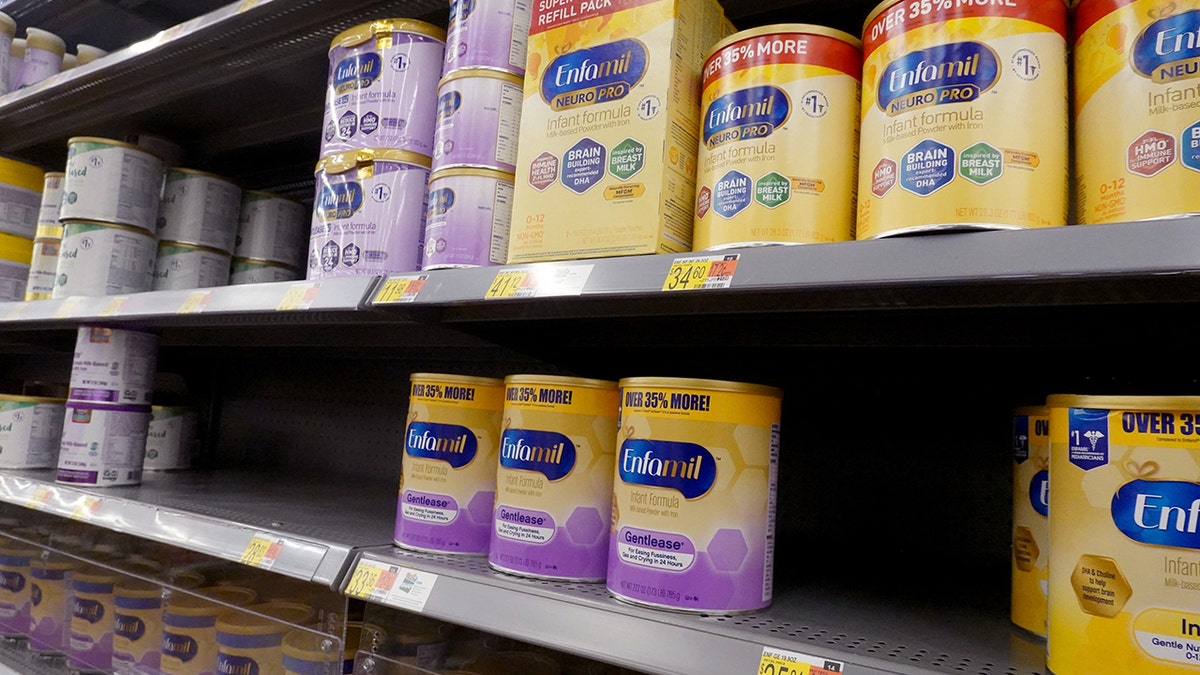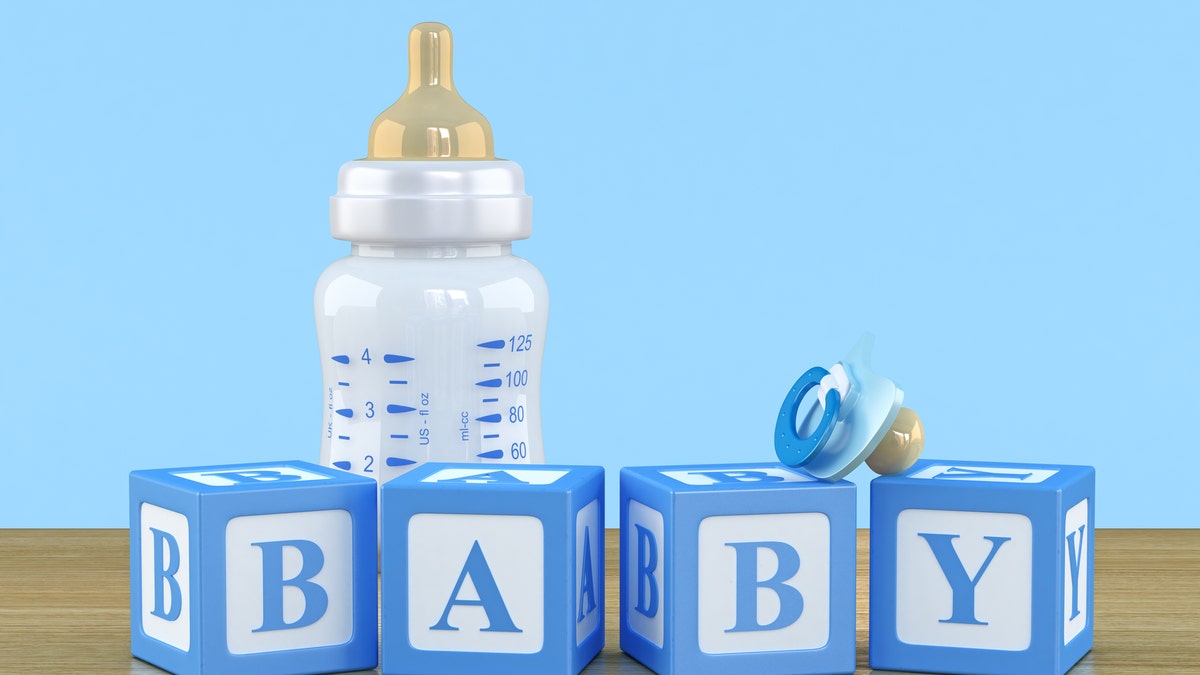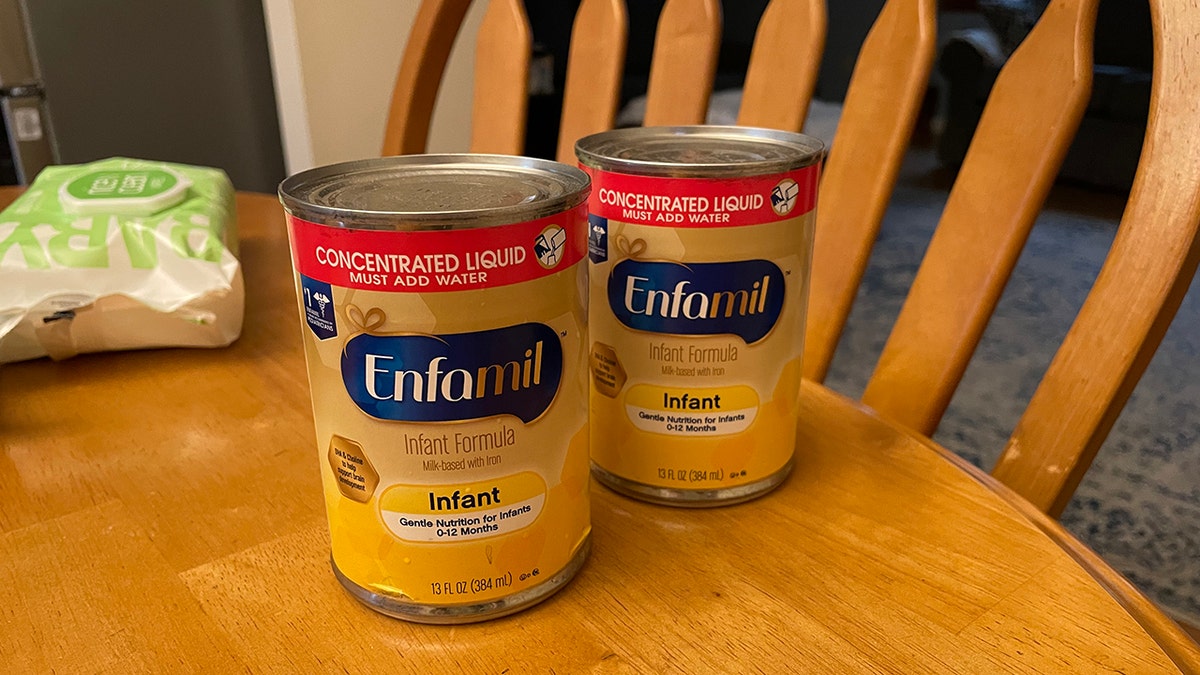Cops in Utah deliver baby formula to desperate mother in need
Mother of five Shannon Bird explains why she was forced to call 911.
The ongoing baby formula shortage in this country is negatively impacting some food banks and pantries that serve lower-income clients, as well as others who count on these facilities for essential products and supplies.
Derrick Williams, operations manager for the Food Bank of Central and Eastern North Carolina in Raleigh, N.C., told Fox News Digital on Friday that its food bank is "definitely being impacted" by the shortage.
"We are still able to operate, but there is not as much [baby formula] as there once was."
"We have seen very little baby formula, and we have had recalls on some baby formula," he said.
He added, "If we do get it [baby formula] at all, we have to make sure it hasn’t been recalled."

Baby formula is shown offered for sale here at a big box store on Jan. 13, 2022 in Chicago, Ill. Baby formula has been in short supply in many stores around the country for several months. (Scott Olson/Getty Images)
Nearly 600,000 people face hunger across the 34-county service area that this food bank serves, the organization notes on its website.
Last year, this particular food bank provided over 115 million meals to families and individuals; it serves a hefty chunk of residents of central-eastern North Carolina.
Due to ongoing supply chain issues, elevated inflation and some recent product recalls, about 30 percent of popular baby formula brands were out of stock in retail stores across the U.S. by early April.
"When the [COVID-19] pandemic was at its height, we were getting a lot of food commodities from the government — but that has stopped."
"Because of food chain shortages, inventory is not what it used to be," Williams also told Fox News Digital about conditions at his food bank.
"When the [COVID-19] pandemic was at its height, we were getting a lot of food commodities from the government — but that has stopped."
PARENTS SEARCH FRANTICALLY FOR HOMEMADE FORMULA RECIPES AMID SHORTAGE
"We are at a decrease right now," he added. "We are still able to operate, but there is not as much as there once was."

Parents in different parts of the country have reported challenges in finding enough baby formula to feed their infants.
While government program WIC — the Special Supplemental Nutrition Program for Women, Infants and Children — regularly supplies formula to lower-income families, some food banks do offer formula to their clients.
The Department of Public Health’s local WIC programs have been "working closely with families" to provide support and information about available options, "including informing them of the temporarily expanded WIC formula list to offer comparable products for formulas that have been difficult to locate," Fox News Digital was told in a statement on Friday.
BABY FORMULA SHORTAGE: KENTUCKY FAMILY REVEALS THEIR DESPERATE DRAMA
WIC also notes that it "continues to promote breastfeeding" and that its programs support the "many families that are choosing to breastfeed their infants."

Pediatricians encourage most new moms to breastfeed for "as long as possible," Dr. Meg Meeker told Fox News Digital. "There is absolutely no reason that parents should put their baby at risk with homemade formulas." (iStock)
But what about all those new moms who cannot breastfeed or whose infants need specially fortified formulas for their health?
‘It is very dangerous’
Given today's shortages of baby formula, some families have been searching desperately for homemade recipe suggestions — but this is a very bad idea, experts say.
"The answer to parents giving homemade formula to their babies is NO! It is very dangerous," Dr. Meg Meeker, a longtime pediatrician, author and creator of the "Parenting Great Kids" podcast, told Fox News Digital on Friday evening.
"Homemade formulas can have contaminates because they haven't been properly handled. But more important problems relate to poor nutrition."
"We know a lot about this because many years ago parents used to make it — but babies got very sick."
She added, "Homemade formulas can have contaminates because they haven't been properly handled. But more important problems relate to poor nutrition," she said.

One pediatrician said she had a toddler in her practice who had "such bad iron deficiency from drinking too much milk that he actually went into heart failure."
"Specifically," said Dr. Meeker, "when parents use cow's milk, it has good protein but lacks the necessary iron for baby's growth. This can lead to iron deficiency in children and is the reason we postpone giving babies cow's milk until after they are a year old."
"By then," she said, "kids will get enough iron in their foods. Believe it or not, I had a toddler [in my practice] with such bad iron deficiency from drinking too much milk that he actually went into heart failure."
Dr. Meeker addressed another "dangerous" alternative that some parents are turning to these days.

Parents of young children across the country have been searching for baby formula for their young ones. One doctor advises parents to ask their pediatrician for contact information for the formula companies. (Fox News Digital)
"Some parents use goat's milk — and this is equally dangerous," she said. "Goat's milk sounds natural, which makes parents feel that it is good — but it lacks enough vitamin B12 and vitamin D."
She added, "Vitamin D deficiency can cause rickets and Vitamin B12 deficiency causes another dangerous type of anemia."
But "that's just for starters," she added. "There can be too much of a glucose load, and too few or too many electrolytes like sodium, potassium and calcium. Low levels of these can cause seizures or heart arrythmias."
This is why, said Dr. Meeker, "we encourage mothers who haven't much money to breastfeed as long as possible … There is absolutely no reason that parents should put their baby at risk with homemade formulas."
CLICK HERE TO SIGN UP FOR OUR LIFESTYLE NEWSLETTER
And for those women who can't breastfeed, she said, "the formula companies give a lot of [baby] formula away — it's good advertising."
CLICK HERE TO GET THE FOX NEWS APP
She advised that if parents "contact the formula companies, they'll help out. Most doctors know who the formula reps are, so moms should ask their pediatrician."



